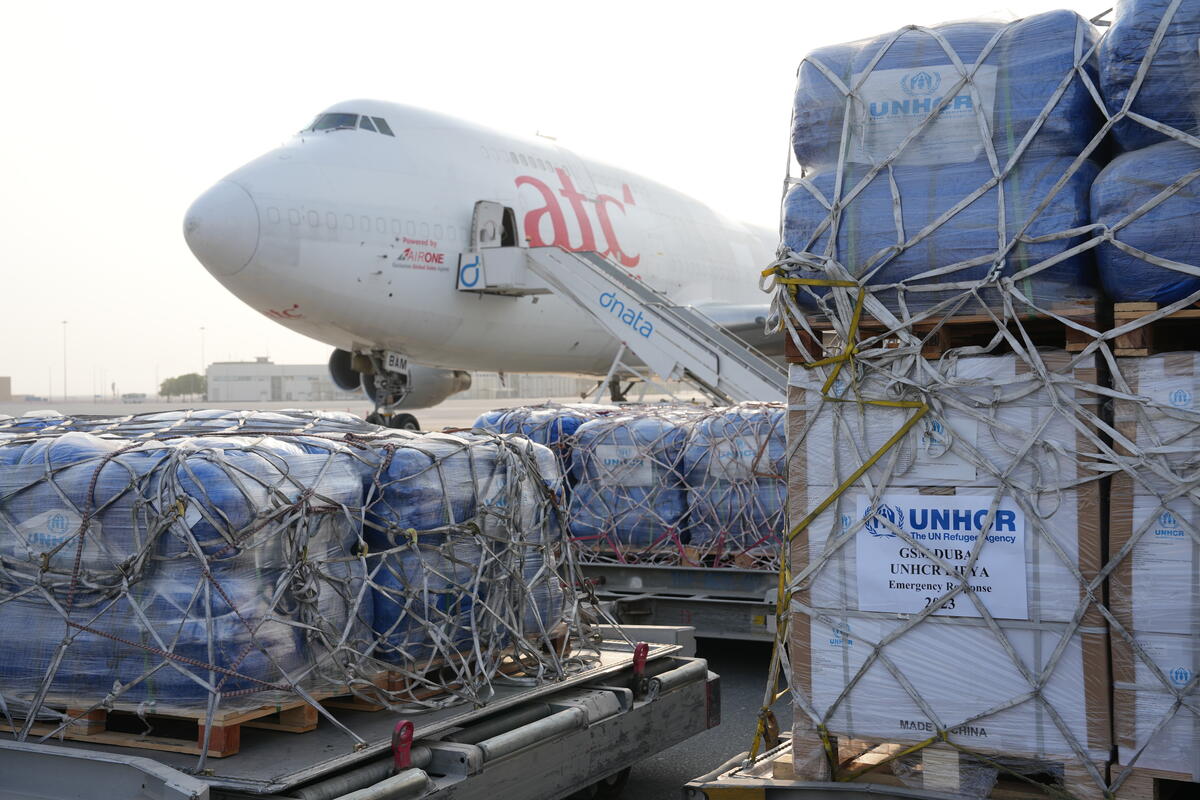News comment by Jean-Paul Cavalieri, UNHCR's Chief of Mission in Libya, on the situation at the Gathering and Departure Facility (GDF) in Tripoli
News comment by Jean-Paul Cavalieri, UNHCR's Chief of Mission in Libya, on the situation at the Gathering and Departure Facility (GDF) in Tripoli
“UNHCR, the UN Refugee Agency, is actively working to find solutions for some 200 people, including migrants and refugees, who arrived yesterday at the Gathering and Departure Facility (GDF) in Tripoli. Most were released from the Abu Salim detention centre, others come from urban areas, with the hope to be hosted at the GDF and resettled from there to third countries.
While we fully understand the very challenging situation these individuals are facing, the GDF is severely overcrowded with over 820 people inside, way beyond its initial capacity of 600 people.
The deteriorating living conditions at the GDF, where the infrastructure and services are stretched thin, make it impossible to take more people in, even the very vulnerable refugees currently detained that UNHCR has already identified as in urgent need of evacuation or resettlement.
The current situation reflects the dire situation faced by many refugees and asylum-seekers in Libya. This morning our teams met with those waiting in front of the GDF, and counselled them on the humanitarian assistance available at our Community Day Centre such as primary healthcare, food, cash assistance and psychosocial support. Registration will also be made available for those not registered yet. Other UN partners are joining the effort.
It is crucial to maintain the transit nature of the GDF which was created at the end of 2018 as a place where the most vulnerable refugees could wait for a few weeks or months following their release from detention and prior to their relocation or resettlement out of Libya.
Since the opening of the facility in December 2018, over 2,300 have transited through the GDF, including over 400 refugees transferred from the Abu Salim detention centre, mostly women, unaccompanied children and families.
Resettlement remains a crucial tool to save the lives of the most vulnerable but is and will remain limited. There are only 55,000 resettlement places available worldwide. It cannot be the only solution to the plight of the 45,000 refugees and asylum seekers in Libya. We urge the Libyan authorities and the international community to work together and find long term solutions to this dire humanitarian situation.”








